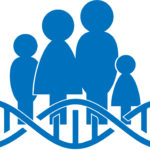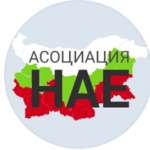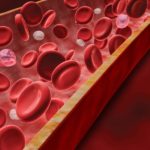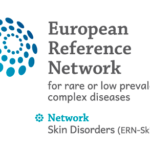 Acromegaly is a rare disease with many challenges. In order to address these challenges, the guidelines were developed with the GRADE system which classifies them according to strength and quality of the evidence for the disease aiming at guiding primary care physicians, endocrinologists and neuroendocrinologists. More information on the developed guidelines could be found here.
Acromegaly is a rare disease with many challenges. In order to address these challenges, the guidelines were developed with the GRADE system which classifies them according to strength and quality of the evidence for the disease aiming at guiding primary care physicians, endocrinologists and neuroendocrinologists. More information on the developed guidelines could be found here.
informer
 Premarital medical consultations are emerging globally as a trend. General practitioners play a major role in properly consulting the couple before marriage, as well as providing guidance for their future reproductive intentions. The purpose of this study is to assess the needs and satisfaction of the modern Bulgarian family with pre-marriage prophylactic medical examination and genetic counseling. A crosssectional survey of families was carried out at the time of submission of documents for state registration of marriage. Primary sociological information was collected through a direct individual questionnaire. The study was conducted in Plovdiv in 2015-2017. A total of 243 couples were interviewed. A high level of health consciousness was observed. Couples predominantly reported premarital examination to be a formality. Less than half of women indicated undergoing medical genetic counseling. Prevention of hereditary and rare diseases and early preconception identification of patients for genetic counseling should be a major priority in health policy and family planning. More information could be found here.
Premarital medical consultations are emerging globally as a trend. General practitioners play a major role in properly consulting the couple before marriage, as well as providing guidance for their future reproductive intentions. The purpose of this study is to assess the needs and satisfaction of the modern Bulgarian family with pre-marriage prophylactic medical examination and genetic counseling. A crosssectional survey of families was carried out at the time of submission of documents for state registration of marriage. Primary sociological information was collected through a direct individual questionnaire. The study was conducted in Plovdiv in 2015-2017. A total of 243 couples were interviewed. A high level of health consciousness was observed. Couples predominantly reported premarital examination to be a formality. Less than half of women indicated undergoing medical genetic counseling. Prevention of hereditary and rare diseases and early preconception identification of patients for genetic counseling should be a major priority in health policy and family planning. More information could be found here.
 Reported prevalence of autism spectrum disorders (ASD) has steadily increased over the past 30 years. Growing ASD patient population highlights a number of medico-social issues and demands sustainable solutions from health, social and educational authorities. Autism Spectrum Disorders in the European Union (ASDEU) is a EU-funded project that is offering an evidence-based ASD public health model, focused on prevalence estimation methods, early detection, early diagnosis and early interventions. Establishment of mechanisms for generation and use of epidemiological data is a key point in planning and implementing health, social and educational activities for ASD. This is а large-scale research task that requires a high degree of coordination and interaction with numerous stakeholders from various jurisdictions. ASDEU main objective is to estimate the prevalence of ASD in the EU. In this paper, we present the protocol for conducting the ASD prevalence study in Bulgaria. More information could be found here.
Reported prevalence of autism spectrum disorders (ASD) has steadily increased over the past 30 years. Growing ASD patient population highlights a number of medico-social issues and demands sustainable solutions from health, social and educational authorities. Autism Spectrum Disorders in the European Union (ASDEU) is a EU-funded project that is offering an evidence-based ASD public health model, focused on prevalence estimation methods, early detection, early diagnosis and early interventions. Establishment of mechanisms for generation and use of epidemiological data is a key point in planning and implementing health, social and educational activities for ASD. This is а large-scale research task that requires a high degree of coordination and interaction with numerous stakeholders from various jurisdictions. ASDEU main objective is to estimate the prevalence of ASD in the EU. In this paper, we present the protocol for conducting the ASD prevalence study in Bulgaria. More information could be found here.
 Considerable part of the dental procedures is associated with postoperative bleeding, which is usually mild and does not pose a serious risk to the patient. Patients with coagulation disorders (e.g. haemophilia or other coagulopathies, anticoagulant therapy, etc.) have an increased risk of bleeding. Even minimal invasive manipulations can cause prolonged bleeding which could prevent completion of the procedure, compromise wound healing, or even be life-threatening.
Considerable part of the dental procedures is associated with postoperative bleeding, which is usually mild and does not pose a serious risk to the patient. Patients with coagulation disorders (e.g. haemophilia or other coagulopathies, anticoagulant therapy, etc.) have an increased risk of bleeding. Even minimal invasive manipulations can cause prolonged bleeding which could prevent completion of the procedure, compromise wound healing, or even be life-threatening.
To analyze data from publications exploring the efficacy and safety of local administration of tranexamic acid and its use to control surgical and postoperative bleeding in dental practice in patients with bleeding disorders.
A systematic search was conducted in PubMed database for all available publications until June 2018, describing tranexamic acid as a haemostatic agent, used in dental treatment of patients with bleeding disorders.
It is approved that in patients taking anticoagulants, after scaling and root planning or oral surgery, washing the operative field with tranexamic acid followed by oral rinses during the first week after the procedure is safe and can reduce the risk of bleeding. 5% tranexamic acid solution is local haemostatic agent with advantages such as low risk of antibody development and contamination of blood products as well as low cost. In controlled studies, the use of a diluted 5% aqueous solution of tranexamic acid (Medocapron®) significantly reduces post-operative bleeding episodes in patients on anticoagulant therapy.
All available data confirms that tranexamic acid can be implemented in dental practice, in combination with or without a change in factor-replacement therapy. Clinical guidelines for the use of tranexamic acid can only be provided after dividing dental procedures into low-risk and high-risk proce.
More information could be found here.
 Endogenous Cushing syndrome is a rare disease which in the childhood results mostly from the exogenous glucocorticoids use. The obstacles for optimal care of a child with Cushing syndrome include mistakes in the diagnostic tracking; lack of access to correct surgical treatment and a lack of well-tolerated and effective drugs to control hypercortisolemia. More information about the disease could be found here.
Endogenous Cushing syndrome is a rare disease which in the childhood results mostly from the exogenous glucocorticoids use. The obstacles for optimal care of a child with Cushing syndrome include mistakes in the diagnostic tracking; lack of access to correct surgical treatment and a lack of well-tolerated and effective drugs to control hypercortisolemia. More information about the disease could be found here.
 Between May 2015 and August 2016 a qualitative research has been carried out on families suffering from hereditary angioedema based on Gadamer’s philosophical hermeneutics. The purpose was to understand the experience of those who care for families affected by hereditary angioedema. The collection of the data includes focus groups and in-depth interviews with 16 families and the medical specialists who take care of them. More information about the study could be found here.
Between May 2015 and August 2016 a qualitative research has been carried out on families suffering from hereditary angioedema based on Gadamer’s philosophical hermeneutics. The purpose was to understand the experience of those who care for families affected by hereditary angioedema. The collection of the data includes focus groups and in-depth interviews with 16 families and the medical specialists who take care of them. More information about the study could be found here.
 “Hereditary Angioedema” Association – Bulgaria organizes a photo-competition with informational purpose and friendly support to people, affected by the disease. The deadline is 15.08.2018 and the winners will be announced on 25.09.2018. Those who wish to join must submit a photo that contains the initials “HAE”, illustrated with handmade materials. Also it can contain a message to patients with the disease. All photos will be posted on the organization’s website and the winners will be provided with a cash prize. Photos can be sent by email: nae_08@abv.bg and on the facebook page of the association.
“Hereditary Angioedema” Association – Bulgaria organizes a photo-competition with informational purpose and friendly support to people, affected by the disease. The deadline is 15.08.2018 and the winners will be announced on 25.09.2018. Those who wish to join must submit a photo that contains the initials “HAE”, illustrated with handmade materials. Also it can contain a message to patients with the disease. All photos will be posted on the organization’s website and the winners will be provided with a cash prize. Photos can be sent by email: nae_08@abv.bg and on the facebook page of the association.
More information for the association could be found here.
 Growing budgetary demands have led to increased study of healthcare spendings for rare diseases, which has led to the idea to define objectively patient-centred value in haemophilia care. An international panel of experts identified the range of patient impacts of haemophilia health care and organize these into a three-tiered, patient-centred outcomes framework based on Porter’s model for assessing value. More information about the framework could be found here.
Growing budgetary demands have led to increased study of healthcare spendings for rare diseases, which has led to the idea to define objectively patient-centred value in haemophilia care. An international panel of experts identified the range of patient impacts of haemophilia health care and organize these into a three-tiered, patient-centred outcomes framework based on Porter’s model for assessing value. More information about the framework could be found here.
 Genomics and phenotype data sharing platforms are being developed to promote genomic research, while maximizing the utility of existing datasets and minimizing the burden on participants. A survey conducted on 10,881 general adults in Japan shows the expectation for stronger protection mechanisms for clinical and genomic data. More research results can be found here.
Genomics and phenotype data sharing platforms are being developed to promote genomic research, while maximizing the utility of existing datasets and minimizing the burden on participants. A survey conducted on 10,881 general adults in Japan shows the expectation for stronger protection mechanisms for clinical and genomic data. More research results can be found here.
 Тhe training course of the European Network for Rare Skin Diseases will be held on 23 November, 2018. ERN-Skin will fund the travel and accommodation of 5 specialists from the EU Member States who do not have ERN-Skin Centers. Bulgaria is one of these countries and the application deadline is extended to 6 July, 2018. More information about the application terms can be found here.
Тhe training course of the European Network for Rare Skin Diseases will be held on 23 November, 2018. ERN-Skin will fund the travel and accommodation of 5 specialists from the EU Member States who do not have ERN-Skin Centers. Bulgaria is one of these countries and the application deadline is extended to 6 July, 2018. More information about the application terms can be found here.
